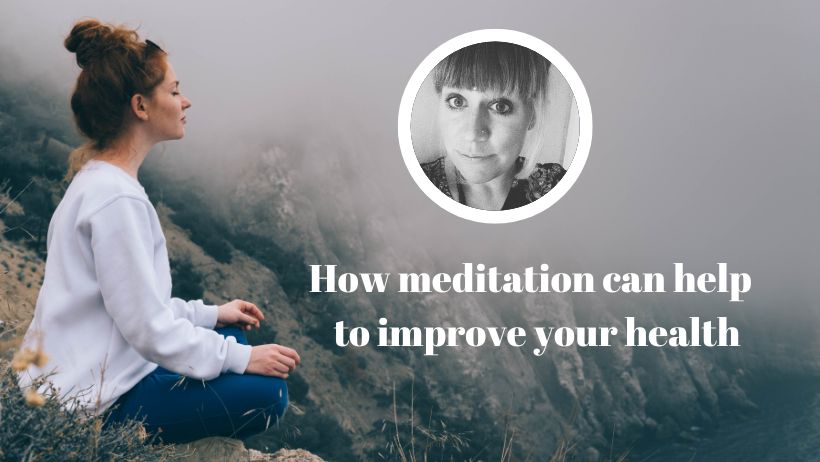According to Buddhism, a person can reach Nirvana, or the highest state of enlightenment, through continuous meditation and participating in the Buddha’s daily service, among other things. However, not everyone who meditates has this goal in mind; there are plenty of reasons why people start to meditate. Some people do it to improve their health and have great success in doing so.

Modern people in this world today, start meditating for many different reasons, as science has proven that meditation is helpful if you want to:
- relax mind your mind
- improve clarity
- find inner peace
- let go of nervous tension and anxiety
- experience states of deep bliss
- find answers to specific questions
- improve the overall cognitive functions
Over time, many people have benefited from the practice of meditation.
As practiced by Buddhist monks and practitioners, meditation has become a spiritual tool and health enhancer. There are so many meditation and mindfulness techniques to choose from these days. You will need to find what is suitable for you at this moment in time. Specific Buddhist meditations include more than just chants and meditative posture. Furthermore, those meditations are about proper breathing and concentration of one’s thoughts. This can be overwhelming for some people; significantly, beginners would benefit from starting with more straightforward techniques such as the Metta Meditation or mindfulness.

As a health and spiritual practice, meditation came into prominence centuries ago. Since then, millions of people have practiced meditation and reaped its benefits. People worldwide devote a part of their lives to daily meditation and see massive improvements in their well-being.
How do we know if we are already in a state of meditation?
When it comes to meditation, there is not only endless bliss awaiting you once you get the hang of it. Furthermore, you will be confronted first with a lot of inner chatter, which the Buddhists call the monkey mind. This state of mind marks the beginning of any meditation and is full of doubts and internal conversations. The natural restlessness of the mind shows up the moment we ask the mind to become still. Our minds are not so used to taking orders and doing as they are told rather than telling us what to do or solve problems. This ego mind, which continuously needs something to do, will be challenged during meditation. In the first few minutes, you will experience this as an ongoing conversation in your head, saying things like:
- Am I doing this right?
- I hope this is over soon
- why are you sitting there and focusing on your breathing?
- Did I turn the oven off?
- oh, I need to get some shopping done
- I should not forget to call so and so…

We all have been there, and we all will be there again. Those questions are typical and show that your mind is processing thoughts. The more you meditate, the more you can start ignoring those thoughts and just letting them be. Breathe into them and then allow them to disappear. If you are new to meditation, this might take some time. It’s about trusting the process, as so many people have high expectations about what they want to gain from meditations but are unaware of the process they must go through.
Meditation is a state of mind that leads to inner peace.
Furthermore, it offers self-fulfillment, self-improvement, and the development of a positive outlook in life. However, these results come from regular meditation practice and not goals we will need to achieve. By practicing meditation, we will more and more enter a relaxed state quicker than when we first started. And still, mediation is a cultivation of the mind, not something we can make happen or force into being. It is about trusting and allowing the mind to calm down at some point without judging how quickly this should happen. Along the pa,th we learn patience, focus, and how to enter into a state of deep relaxation.

There are two types of meditation.
There are three types of meditation, but to make it easier for you, let’s concentrate on the two primary forms: the concentrative and the mindfulness type. Concentrative is focused on the person’s concentration, sitting quietly and calmly with good breathing patterns. It is said that one’s mind is somewhat connected to one’s breath of air. The continuous rhythm of inhales and exhales of the breath will make the person feel calmer and more relaxed, focusing on the steady flow of air in and out of their bodies. This will result in the mind being more aware and tranquil at the same time. Some people use a particular point or even a candle or other object they can put their focus on. It allows them to direct attention to something outside themselves and can be helpful.
Mindfulness
It is a different approach to meditation and involves attention and awareness on passing waves of sensations, images, feelings, thoughts, sounds, smells, and anything your body can interact with. This, in turn, will give the person a more non-reactive mind state, much like watching television, without any feelings or thoughts that can bother you. Again it will take time to do this and reach a non-reactive mindset. However, as the saying goes, the more effort you put into the practice, the more you will get out of it. In the end, it’s more about discipline and redirecting the mind back to awareness than anything else.
Meditation and Science
For quite a while, meditation has now found its way to being scientifically analyzed, and the results are outstanding. In scientific studies, it has been proven that there are health benefits in regularly practicing meditation. This ranges from the relaxation of the muscles, slowing down the heart rate, learning to do deep free breathing, and the mind entering into a relaxed state. This is called the alpha state, a level of consciousness promoting good healing. Since people are constantly moving, taking some time off and going into stillness can be somewhat helpful. By doing so, we allow our whole being to set aside all the worries and problem-solving mindset and reach a state of just being without the need to do anything.

Meditation and Spirituality
Some people meditate as their spiritual practice. This way, they can see their innermost self fully and become aware of their “real self.” By authentic self, people often refer to the part of ourselves that is not attached to any outcomes or successes in the world. A part of us is not determined by the opinion of other people or our achievements. This awareness and spiritual practice of meditation can help a person dealing with external difficulties to see past all the challenges and become more humble and calm in dealing with situations. This relaxed state of meditation can also help take away simple headaches, stress, or even mild anxiety.
So whatever the reason why you seek out meditation, you should give it a go and see where it can take you.



